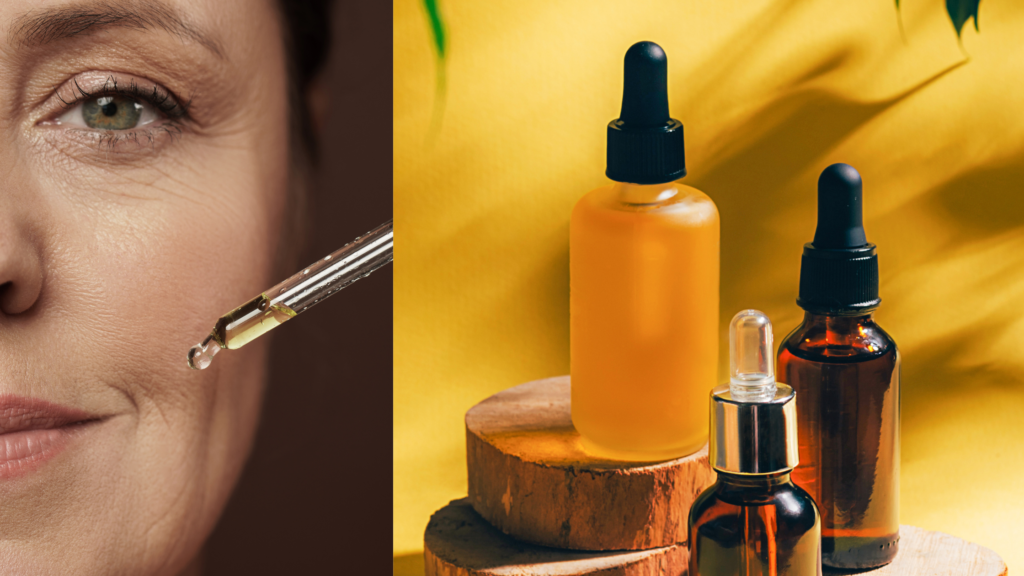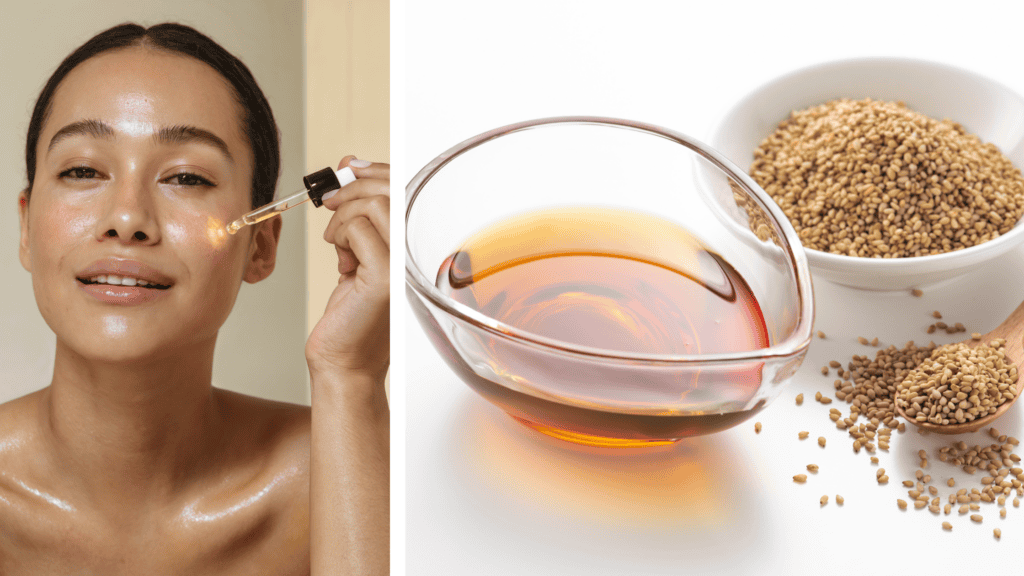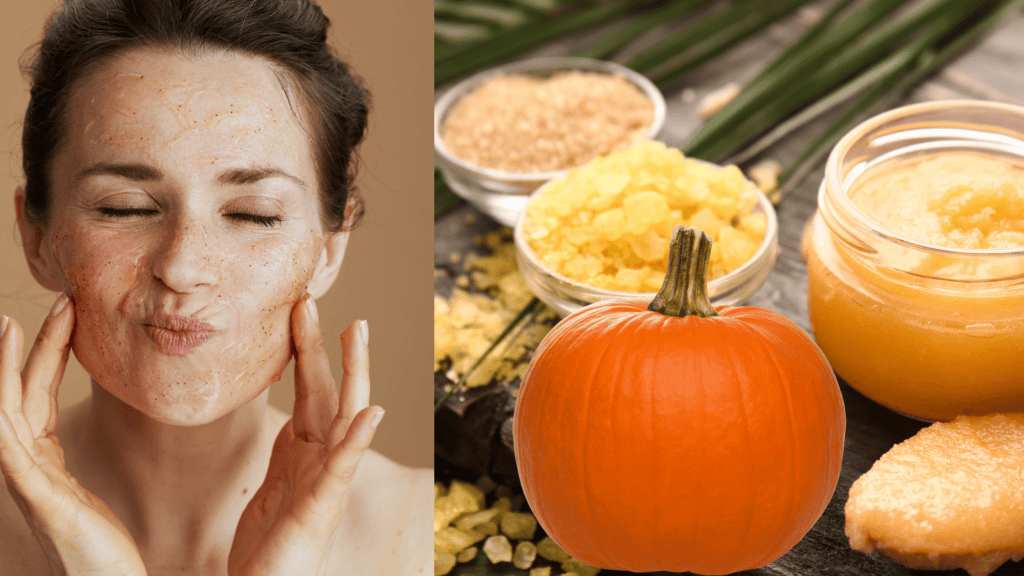If you have sensitive skin, are breastfeeding or nursing, yet want the benefits that retinol gives to the skin, you will be looking for effective natural skincare options! While many more natural ingredients can give your skin the same effects, look at these natural oils that offer similar benefits to retinol but without the potential side effects.
Oils have incredible benefits in soothing and softening the skin. They are rich in fatty acids, anti-oxidant-rich vitamins, and many other nutrients that help delay the signs of aging, ease lines and wrinkles, moisturize and firm, all without the side effects retinol is known for.
The best natural oils that can give retinol a run for its money include;
- Bakuchiol oil.
- Avocado oil
- Rosehip oil
- Carrot seed oil
- Sea Buckthorn oil.
- Apricot kernel oil
- Orange peel oil.
- Safflower oil
- Turmeric root oil
- Ylang Ylang oil.

What Is Retinol?
What is retinol, and why has it become so popular in skincare routines? Retinol is a derivative of vitamin A and is known for its ability to promote cell turnover, reduce the appearance of fine lines and wrinkles, and improve overall skin texture. It is often sought after for its anti-aging benefits.
Often considered the gold standard in skin care, retinol is favored for its ability to promote collagen, ease wrinkles and age spots, and hyperpigmentation!
While retinol may be effective for many individuals, some may find it too harsh for their skin. Common side effects of retinol include dryness, redness, and skin irritation. These side effects can be particularly challenging for those with sensitive skin or conditions such as rosacea or eczema. That’s where natural oil alternatives come in handy!
The Need For Retinol Alternatives.
The need for alternatives to retinol arises from the side effects that some individuals experience. Dryness, redness, and skin irritation can be quite uncomfortable and may discourage people from using products containing retinol.
If you are out in the sun a lot, retinol is also not the best choice; it ceases to work under UV light and can also make your skin photo-toxic, becoming sensitive.
Therefore, many need to find alternative options if they cannot tolerate or prefer to avoid retinol because of these side effects.
Retinol is also not recommended for pregnant or nursing mothers, but many natural alternatives offer the same benefits!
The Best Natural Oils That Are Alternatives To Retinol.
Rosehip oil is considered one of the best anti-aging oils for the skin, but read on to get more ideas!

Bakuchiol Oil
One of the most popular natural oil alternatives to retinol is bakuchiol oil. Derived from the seeds of the babchi plant, bakuchiol oil is known for its anti-inflammatory properties and potential collagen synthesis stimulation. It provides similar anti-aging benefits to retinol without the associated side effects.
Buy Bakuchiol oil in its oil form or look for it in many natural skin care formulations.
Avocado Oil
Avocado oil is a nourishing oil rich in vitamins A, C, K, B6, and E. These vitamins help promote healthy-looking skin by protecting it from free radicals and supporting collagen production. Avocado oil is deeply moisturizing and can improve the appearance of dry or dull skin.
High in fatty acids, Avocado oil protects from free radicals and promotes collagen production for a renewed and radiant complexion!
Avocados are fantastic for beautiful skin; whether you eat them or apply them to your skin, this post gives you some idea of the benefits and uses of the oil!
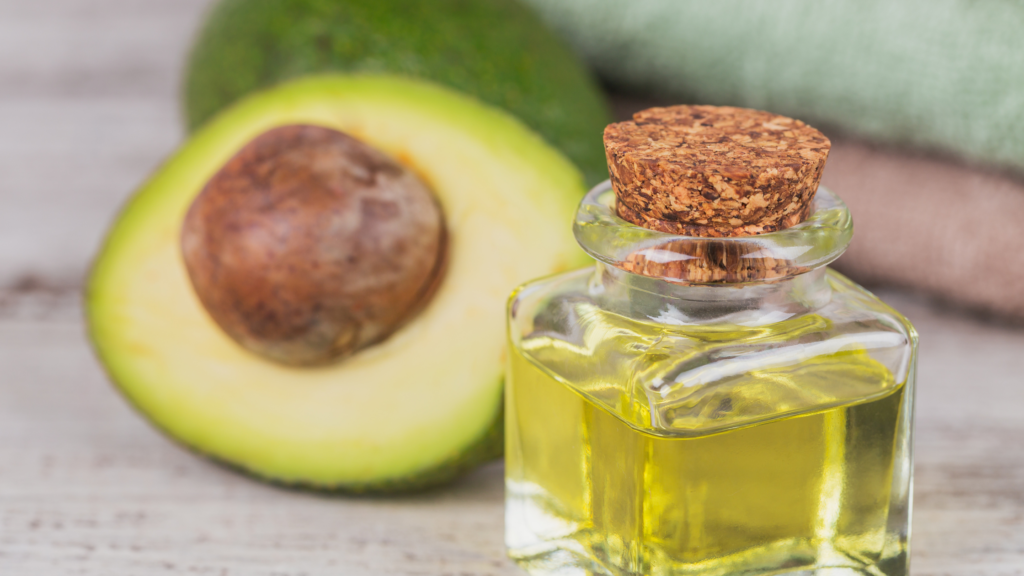
Rosehip Oil
Rosehip oil contains antioxidants, vitamins A and C, and essential fatty acids. These nutrients help improve skin texture and tone, reduce hyperpigmentation, and promote a youthful glow. Rosehip oil is known for its ability to fade scars and improve the skin’s overall appearance.
Known as an incredible anti-aging oil, if you want the effects of retinol but none of the sensitivity, this is a great oil to have in your daily skincare!
Read more here about the beauty skin benefits of this celebrated anti-aging oil!
Carrot Seed Oil
Carrot seed oil is a rejuvenating oil that provides gentle hydration to the skin. It is rich in antioxidants and vitamins, which help protect the skin from environmental damage and promote a healthy complexion.
Carrot seed oil contains beta-carotene, a carotenoid, which, like retinol, is converted by the body to vitamin A.
Carrot seed oil is particularly beneficial for mature or dry skin types, as it protects and repairs skin aging from UV and environmental damage!
Read more about Carrot seed oil; it will give your skin a soft, radiant glow!
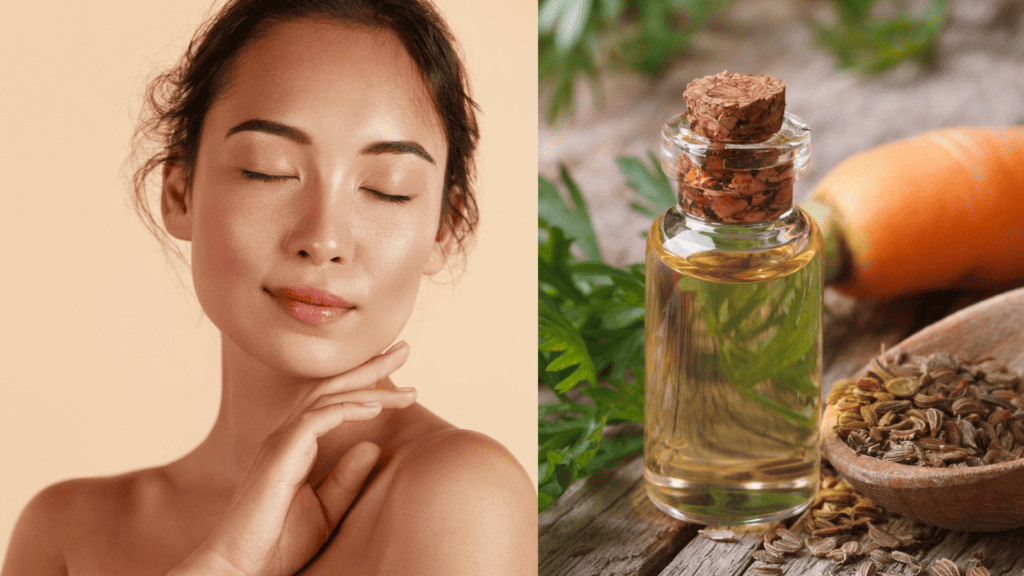
Sea Buckthorn Oil
Sea buckthorn oil comes from the fruit, berries, and seeds of the seabuckthorn plant; it is a powerhouse of nutrients, including omega fatty acids, beta-carotene, and vitamin-rich antioxidants, including A, E, and C. These components support skin health and promote a youthful appearance by reducing inflammation and improving skin elasticity.
Sea buckthorn oil is also known for enhancing the skin’s natural barrier function, stimulating collagen production, reducing redness, hydrating the skin, and improving cell turnover.
Apply daily to renew and regenerate your skin for a radiant glow!
Read more about the skincare benefits of using this incredible oil!
Apricot Kernel Oil
Apricot kernel oil is a lightweight oil easily absorbed by the skin. It is high in vitamin A and is fantastic as a retinol alternative. According to research by the United States Department of Agriculture (USDA), apricot oil contains approximately 2000-3000 IU (International Units) of vitamin A per 100 grams.
Apricot kernel oil is known for its moisturizing properties and ability to soothe sensitive or inflamed skin. It is also rich in vitamin E, which helps nourish and protect the skin from free radicals.
If you have signs of photo-aging on your skin, along with lines, wrinkles, and dark spots, Apricot oil will help to repair UV damage done to the skin, softening and smoothing it to reveal a more plump and soft complexion!
Read more about Apricot kernel oil and how to use it for more beautiful and youthful skin!

Orange Peel Oil
Orange peel oil is a brightening agent that can help reduce the appearance of dark spots and promote a radiant complexion. It is rich in antioxidants and vitamins A and C, which help even out skin tone and improve overall skin texture.
Orange peel oil is anti-inflammatory, protects against free radical damage, and promotes collagen production. Its refreshing scent can also uplift your mood during skincare routines.
Buy Orange peel oil; this wonderfully fragrant oil has been a staple in Ayurvedic skin care formulations for centuries!

Safflower Oil
Safflower oil is a lightweight oil suitable for all skin types. It doesn’t block the skin pores nor stain bedding or clothing, which can be an issue with other oils. Rich in vitamin E, this anti-oxidant-rich oil is a game-changer for reducing UV damage to the skin.
Safflower oil is non-greasy and easily absorbed by the skin. It is known for its potential to improve skin elasticity and reduce the signs of aging, and it can also help protect the skin from environmental stressors.
Apply day or night to fade dark spots, reduce wrinkles, and firm the skin by improving elasticity!
Read more about using Safflower oil here!
Turmeric Root Oil
Turmeric root oil has anti-inflammatory properties that can calm irritated skin and reduce redness. It is also known for promoting a natural glow and even outing skin tone. Thus, it is an excellent option for sensitive or acne-prone skin.
Buy Turmeric root oil for fine lines, wrinkles, and dark spots!
Ylang-Ylang Essential Oil
Ylang-ylang essential oil is versatile and can balance sebum production, making it suitable for both oily and dry skin types. It has a calming and soothing effect on the skin, helping to reduce redness and promote a healthy complexion. Ylang-ylang essential oil also has a delightful floral scent that can enhance your skincare routine.
Buy Ylang-Ylang for beautiful skin and read about other essential oils that are great for anti-aging!
Always dilute essential oils in carrier oils before using them on your skin!

The Best Way to Use Natural Plant Oils As A Retinol Alternative!
Now that we’ve discussed the benefits of natural plant oils and highlighted a few key options, let’s explore how you can use them in your daily skincare regimen!
Patch testing and find the right oil for your skin type!
Before fully incorporating a new natural plant oil into your routine, it’s essential to patch-test it on a small area of your skin to ensure you don’t have any adverse reactions. Additionally, consider your skin type and specific concerns when selecting an oil. For example, lighter oils may be more suitable for oily skin, while those with dry skin may benefit from heavier oils like apricot or rosehip.
Apply oils in combination with other skincare products:
Natural plant oils can be combined with other skincare products to enhance their efficacy. Mix a few drops of your chosen oil with your moisturizer or serum to boost hydration and nourishment. Alternatively, apply the oil as the last step in your routine to seal in moisture and provide a protective barrier.
If you prefer oils alone, apply them to damp, clean skin; once absorbed, apply an SPF; this post tells you why! Or a natural night cream, try these, depending on when you use them!
Adjust The Amount Of Oil Used!
The amount of natural plant oil you use in your skincare routine can vary depending on personal preference and skin needs. Some individuals prefer a more generous application, while others opt for a smaller amount.
Listen to your skin and adjust the quantity accordingly. Remember, a little goes a long way with natural plant oils. You don’t need to smother your skin to get the benefits!
Addressing Concerns and Misconceptions:
As with any skincare topic, there are bound to be concerns and misconceptions surrounding using natural plant oils. Let’s address a few common ones:
- Concern – Natural plant oils can clog pores and cause breakouts.
- Advice – While it’s true that some oils can be comedogenic (pore-clogging), many natural plant oils have a low comedogenic rating and won’t cause breakouts. Additionally, oils like safflower oil help regulate oil production and prevent clogged pores.
- Concern – Natural plant oils are too heavy for oily skin.
- Advice – Contrary to popular belief, natural plant oils can benefit oily skin by balancing sebum production and providing lightweight hydration. Oils are excellent options for individuals with oily skin.
- Concern – Natural plant oils aren’t as effective as retinol.
- Advice – Natural plant oils may not provide the same immediate results as retinol, but they offer a gentler and more sustainable approach to skincare. With consistent use, natural plant oils can improve skin texture, tone, and overall health without the potential side effects of retinol!
Read this post on the myths about face oils to get you started!
Conclusion
In a world where skincare trends come and go, natural plant oils have established themselves as a friendly alternative to retinol. Their gentle nature, rich antioxidant content, and diverse range of beneficial properties make them a compelling choice for those seeking a more holistic approach to skincare.
You can enhance your skincare routine and achieve healthy, radiant skin by exploring natural plant oils and finding what works best.
Because everyone’s skin is unique, what works for one person may not work for another. It’s always a good idea to patch-test new products and consult a dermatologist or skincare professional before incorporating fresh ingredients into your routine!
This post contains affiliate links. If you purchase through these links, we may receive a small commission, which will not affect your sale.
Glowitgreen.com is a member of the Amazon affiliate link program.

